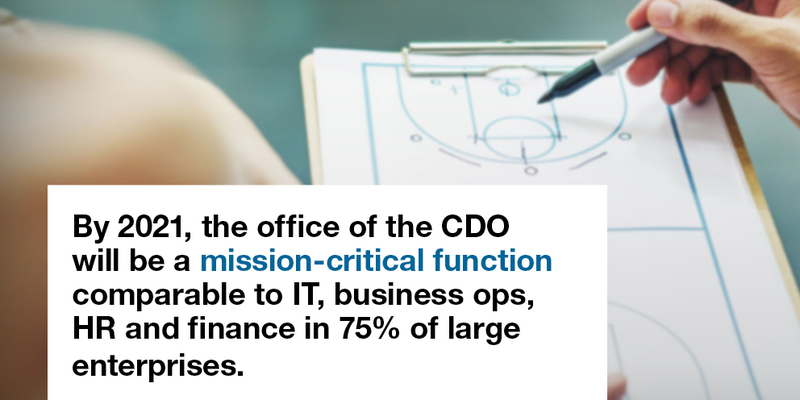The Chief Data Officer's role in enterprise AI readiness
AI is like teenage sex: everyone is talking about it but very few are actually experimenting. From my experience in the market, most organizations have discussed or have even considered AI at some point, but very few are actually implementing internal "AI projects." On top of that, almost all of them are getting modest results compared to their expectations. Clearly, there is an ability gap in understanding, orchestrating, and leading data initiatives.
When it comes to data science expertise and suitable products, there are significantly different levels of practical organizational readiness. From an organizational perspective, the lack of trust in AI and critical skills to drive action are severe challenges to its uptake. To develop the trust needed both internally and externally, it is crucial for a data science team to develop a deep understanding of business issues and abandon the “data is just data, no matter the problem” mantra; on the other hand, executives must also be being prepared to trust insights from the data. This journey usually requires a corporate culture change and, therefore, takes time. This reality explains why many senior managers are more optimistic about the potential of AIthan their organization’s readiness to exploit it.
Calling a New Leader
Despite the skepticism and uncertainty, a good sign of data’s importance at leading corporations is the establishment of the Chief Data Officer role. A 2018 study by advisory firm New Vantage Partners shows that almost two-thirds of Fortune 1000 executives reported that their company has a CDO. Compared to 2012 when only 12% of executives reported having a CDO, this remarkable increase indicates that the Chief Data Officer role has become a permanent role within most leading corporations.
However, despite the trend of recognizing the need for a Chief Data Officer, there is a lack of consensus on the nature and responsibilities of the role, as well as the background that qualifies an executive to operate as a successful CDO. Furthermore, because few organizations have assigned revenue responsibility to their Chief Data Officers, for most companies, the CDO role functions primarily as an influencer, not a revenue generator, which might also explain the confusion and absence of unified vision about exploiting the potential of data and AI. The different view on CDO responsibilities, mandate, and importance underscores why Chief Data Officer is a challenging job in the c-suite within many organizations, and why the position has become a hot seat with a high turnover in several enterprises.
To increase the confusion, it is typical for C-level and VP level executives to openly admit that data responsibility remains in silos where each product or business unit keeps the full responsibility of the data and analytics initiatives. In other words, there is no single point of accountability for data and analytics within and across their organization. For those professionals with more than 20 years of experience, this should not be surprising. Most corporations that have been in existence for decades, or longer, were not organized around data as an organizing principle, or as an enterprise asset. As companies adjust (too often requiring more than simple adjustments) to become data-driven organizations and work to forge data cultures, there is bound to be lingering resistance to change, or a profound lack of agreement on where data responsibility lies, or even what it looks like.
Ingredients for Success
In establishing the CDO role, there are two opposite and almost equally adopted approaches one can take. One school of thought is that the CDO should be an external change agent who brings fresh perspectives. The second school of thought is that the CDO should be an internal veteran who understands the culture and history of the company and knows how to get things done within that organization. There is no correct answer to this question, but the level of conservativeness within an organization (particularly in the top management), the aversion to risk, and the resistance to change all mark the path to follow. The heritage, age, and dynamics of the company also plays a crucial role in the decision.
It is important to highlight that, despite the differences in the mandated scope and the CDO background (outsider vs. insider), there are a few key ingredients that everyone seems to agree with when it comes to defining a successful CDO:
• He or she must be either a data scientist or a technologist who is highly familiar with data science practices.
• He or she must have a deep understanding of the vertical where the company is operating.
• He or she must be able to translate business objectives into data science activities and data science insights into business actions to reach the target.
AI and data analytics adoption for any enterprise of any size and business is a journey, and that journey requires a driver. This driver should oversee making the process safe, secure and profitable for the company. Like any other driver, experience is the critical factor. The CDO will be near the center of action as companies strive to become data-driven, but should also be prepared to face a hard transition towards the coming global data age.


Comments
Be The First To Post